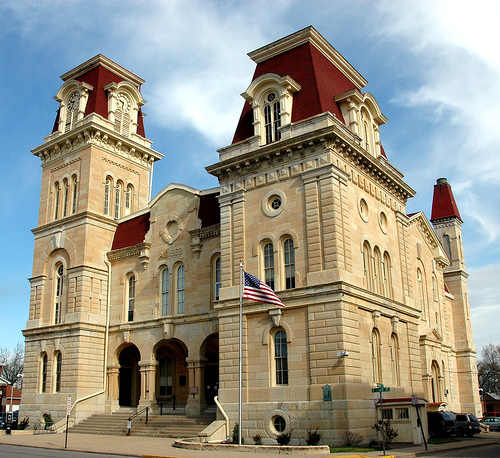Since the founding of our communities, organizations, businesses and citizens have stepped forward to build and serve their community. Click on any of the logos below to learn about those who made this website possible! If you would like to learn about becoming a sponsor CLICK HERE!
- County: Morgan County, IL
- Region: Southwest IL
- Sponsors
- About Jacksonville, IL
- Businesses
- Community Organizations
- Faith Organizations
- Festivals and Events
- Points of Interest
- Veterans
- Visit Website
Learn how to Contribute to any of the above categories.
No news yet. Got some news? Hit that NEW POST button!
About Jacksonville, IL
Before there was a town of Jacksonville, before there was a State of Illinois, and even before the Native Americans, there was the land. The wide, treeless prairies, with grass as tall as a man, were formed with the melting of the last ice age. To these prairies have come people of different cultures, but with a single aim, to live a prosperous, healthy, happy life. To this day, the land is one of the traditions that we take for granted. The fertile fields surrounding Jacksonville feed us and the world. To these unplowed fields came the first settlers, who became rooted to the fertile land and the possibilities of a fresh start.
The city has an annual commemoration of the Civil War, with a reenactment named for the late Jacksonville resident U.S. Army General Benjamin Grierson.
In 1911 as part of the progressive movement, Jacksonville adopted the city commission form of government, the first mayor being George W. Davis.
In the summer of 1965, in order to keep up with customer demand for records by the Beatles, the wildly popular English band, Capitol Records opened a vinyl record pressing plant on the western outskirts of Jacksonville, at 1 Capitol Way. The plant produced a number of highly collectible pressings. This plant eventually served the Capitol Records Club, producing vinyl LPs and later audio-cassettes, CDs, and DVDs of a number of artists.
At its peak, operating as EMI Records (owner of Capitol), the plant employed over 1,000 workers. It was a significant location in the music industry. For example, all seven albums released by country western artist Garth Brooks sold more than 50 million copies. EMI held a “thank-you” luncheon for 1,000 workers at the Jacksonville plant on March 10, 1995. A decade later, EMI ceased manufacturing operations at Jacksonville in 2004.
Businesses of Jacksonville, IL
The businesses of our towns are truly the lifeblood of each community, click on any businesses below to learn about them, to learn how to add your business to your town and county page CLICK HERE!
Morgan County, IL
Visit our county page and you will find information about our town and county's points of interest, festivals/events and faith community. You also will learn about the community organizations that have built and continue to build strong communities (chambers, community groups, and departments, etc) and much more when you visit the Morgan County, IL page.

